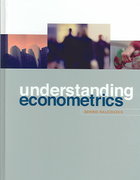Answered step by step
Verified Expert Solution
Question
1 Approved Answer
1) (5 points) Suppose the market for plates can be expressed as follows: Supply: = -20 + 10p Demand: = 400 - 20p Solve for
1) (5 points) Suppose the market for plates can be expressed as follows:
Supply: = -20 + 10p Demand: = 400 - 20p
Solve for the equilibrium price and quantity.
- 2)(5 points) If a market is in equilibrium, explain why the equilibrium price is referred to as the market clearing price.
- 3)(15 points total available) Suppose that the supply and demand of wheat depend on the price of wheat (p), the amount of annual rainfall (r), and the level of disposable consumer income (I). The equations describing the supply and demand curves are given by:
- QS=20r +100p
- QD=4000-100p +10I
- (5 points) Using the supply and demand curve for wheat above, sketch the supply and demand curves demonstrating the effect of an increase in disposable consumer incomes. How does each curve shift (if at all) to the increase in income? What does the shift do to equilibrium price and quantity?
- (5 points) Using the supply and demand equations for wheat, solve for the equilibrium price and quantity as functions ofIandr.
- (5 points) Determine how the equilibrium price and quantity vary with an increase in rainfall(r) holding other factors that influence supply and demand fixed. How do the equilibrium price and quantity change with an increase in income(I).
- 4)(6 points) Assume the market demand for wine may be written as Q = 45 - 2p + 0.3Y + 1pb
where Y refers to income and pbrefers to the price of beer. Assuming that wine and beer both sell for $1, and income is $20, calculate the price elasticity, cross price elasticity and income elasticity for wine.
- 5)(15 points total available) Suppose that the long-run world demand and supply elasticities of crude oil are -0.906 and 0.515, respectively. The current long-run equilibrium price is $30 per barrel and the equilibrium quantity is 16.88 billion barrels per year.
- (10 points) Derive the (linear) long-run demand and supply equations.
- (5 points) Suppose the long-run supply curve you derived above consists of competitive supply plus the quantity of OPEC supply. If the long-run competitive supply (not including OPEC's production) is:
- QS= 7.78 + 0.29p,
- what must be OPECs level of production in this long-run equilibrium to maintain the
- price of $30?
- 6)(8 points) Suppose Joe's utility for Long boards (L) and Soda (S) can be represented as U = L0.5S0.5. Draw the indifference curve that yields a utility level of 9. Calculate the MUL, MUS, and MRS of L for S on that indifference curve when S = 3.
- 7)(5 points) Ed has the utility function U(F,M) = , where C = number of carrots per month and M = number of muffins per month. Gloria has the utility function V(F,M) = 15 + . Do Ed and Gloria have the same preference ordering of carrots and muffins? How can you tell?
- 8)(5 points) Joe subscribes to an Internet provider that charges $2 per hour. Draw his budget line for Internet access on the horizontal axis and money spent on all other goods on the vertical axis assuming he has $100 per month to spend. Another company offers unlimited Internet access for a flat monthly fee of $20. Draw this budget line.
- 9)(20 points total available) Consider Jen, a consumer with preferences U(H,F) = F1/3H2/3, where H is the quantity of housing and F is the quantity of food (per month). Suppose Jen has a stipend of $600/month which she uses to purchase food at a price of $1/unit and housing at a price of $10/unit.
- (5 points) Compute Jen's utility-maximizing bundle of goods.
- (5 points) Suppose that Jen's employer subsidizes housing by paying 50% of her total
- housing costs, thereby effectively lowering the price Jen pays for housing to $5/unit.
- Compute Jen's new optimal consumption bundle.
- (5 points) How much does Jen's employer pay in total for this subsidy? How much
- utility does Jen enjoy with this subsidy (compute her utility at the optimal bundle).
- (5 points) Suppose that her employer simply gave Jen the dollar cost you found in (c) as
- a lump sum (instead of subsidizing housing). Will Jen gain a higher utility from the housing subsidy or the lump-sum equivalent transfer?
- 10)(6 points) Darwin's preferences are given by U(q1,q2) = q1.5+ q2. Derive the demand equations for q1and q2. Assume prices and income are such that both goods are consumed in strictly positive quantities.
Step by Step Solution
There are 3 Steps involved in it
Step: 1

Get Instant Access to Expert-Tailored Solutions
See step-by-step solutions with expert insights and AI powered tools for academic success
Step: 2

Step: 3

Ace Your Homework with AI
Get the answers you need in no time with our AI-driven, step-by-step assistance
Get Started


